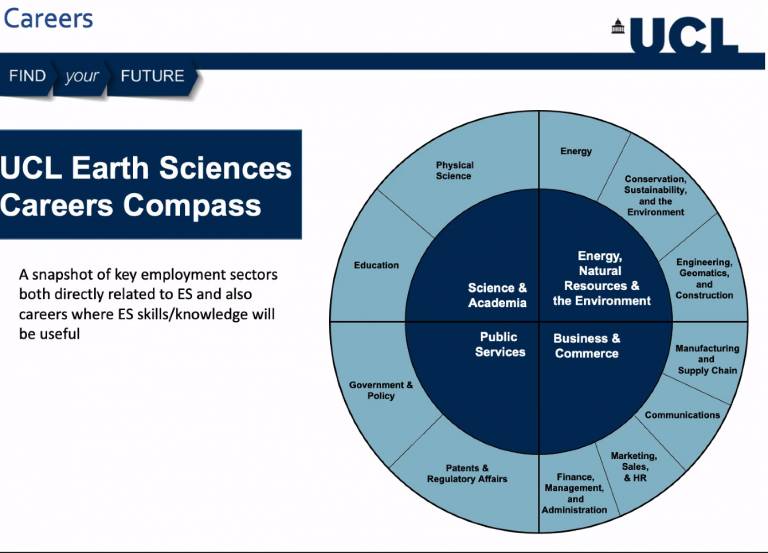Find out about what careers Earth Scientists have gone into and how we keep in touch with our Alumni.
Our graduates are employed in a diverse range of roles within the global geology sector including mining, energy, water supply and sustainability.
In-demand transferrable skills developed in data-analysis and interpretation, problem-solving and independent research also lead to wider career options including government & policy, finance & management and science & academia.

Meet our Alumni:
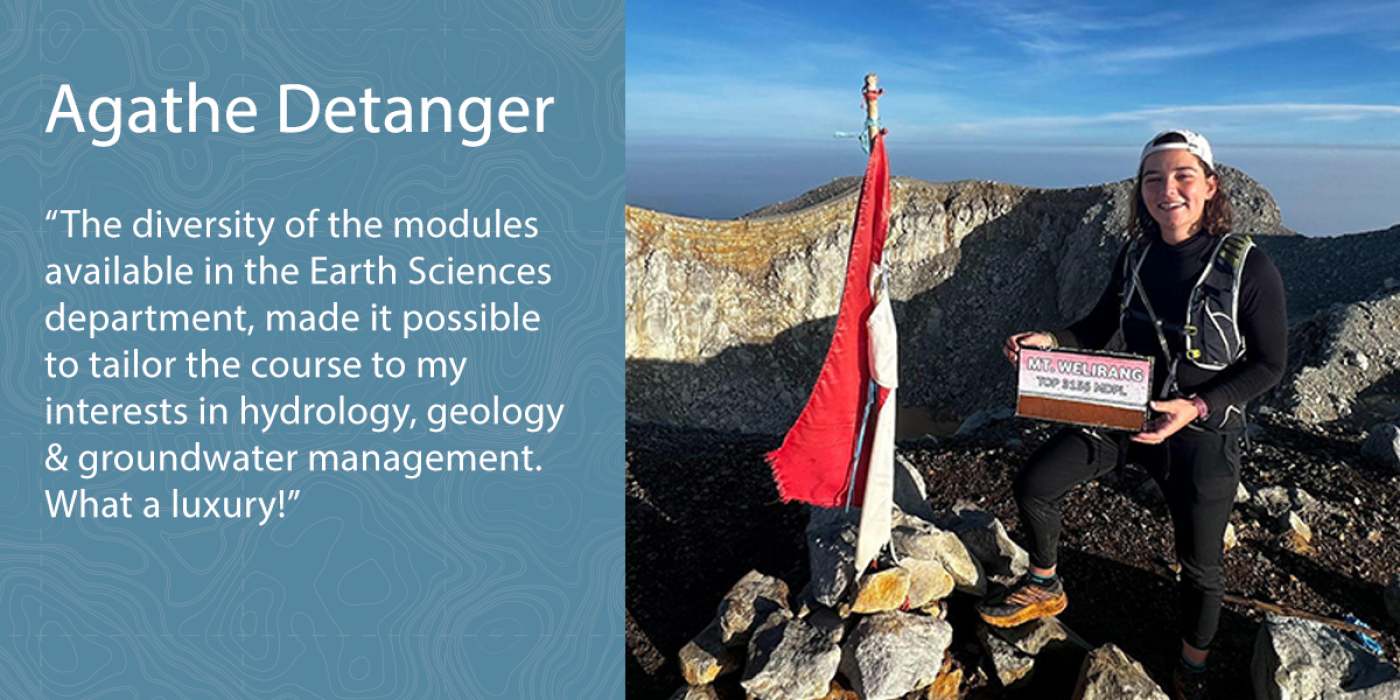
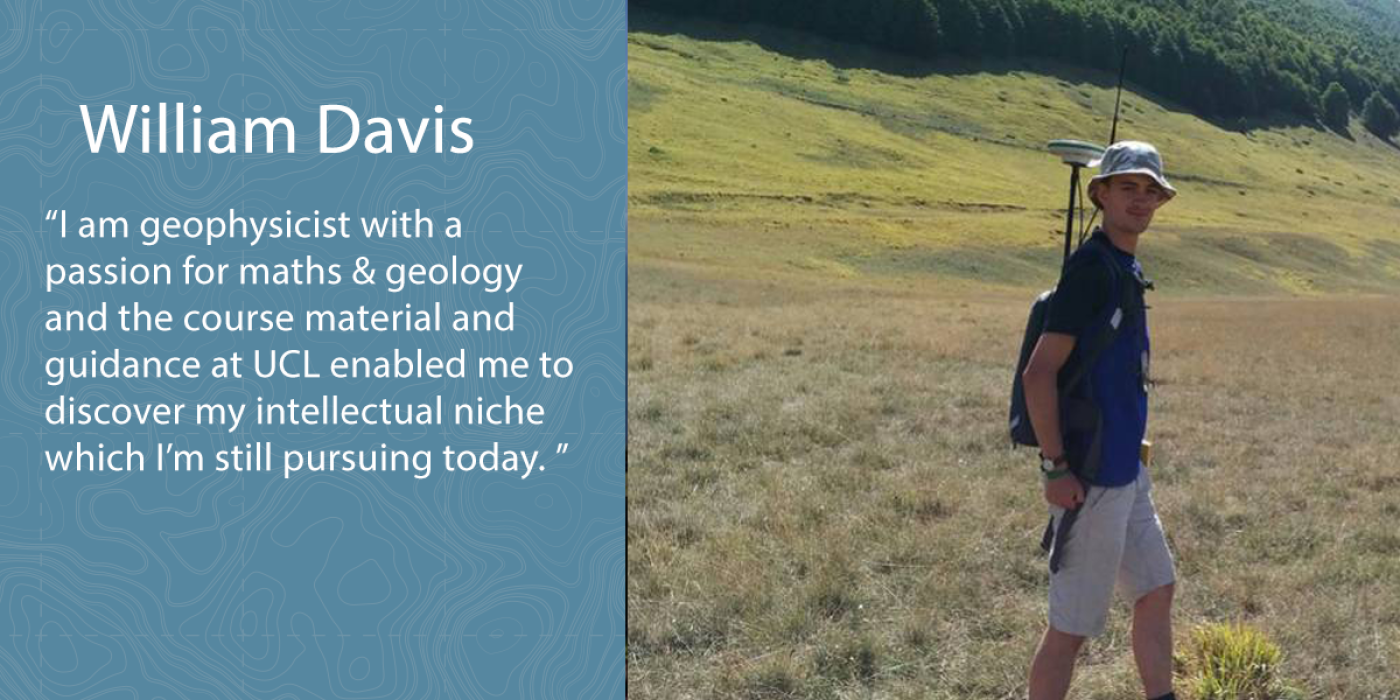
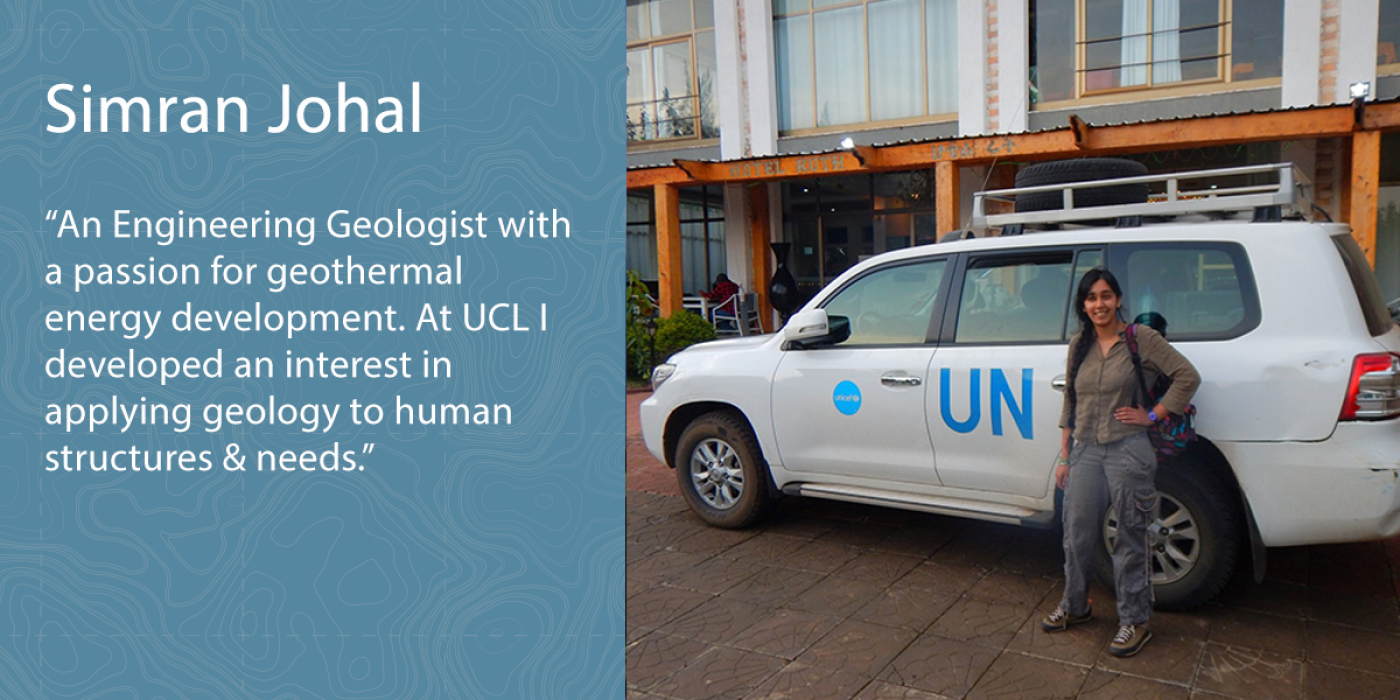
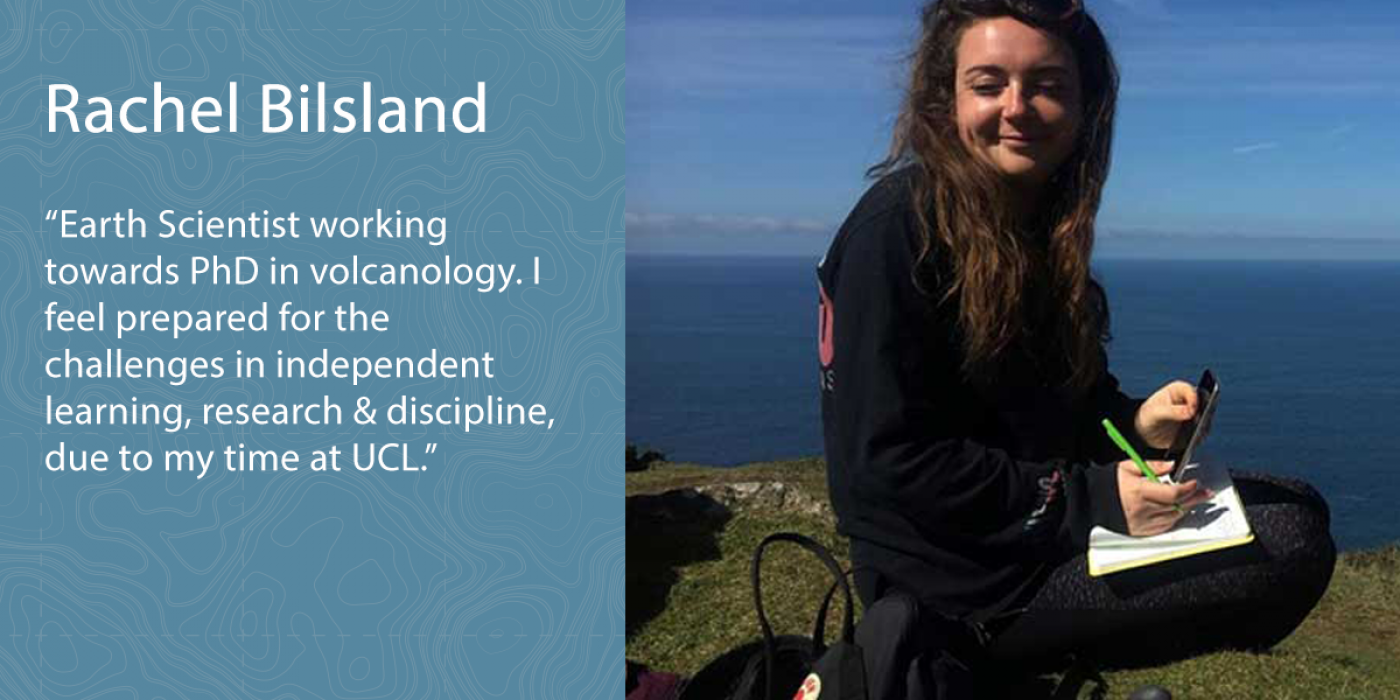
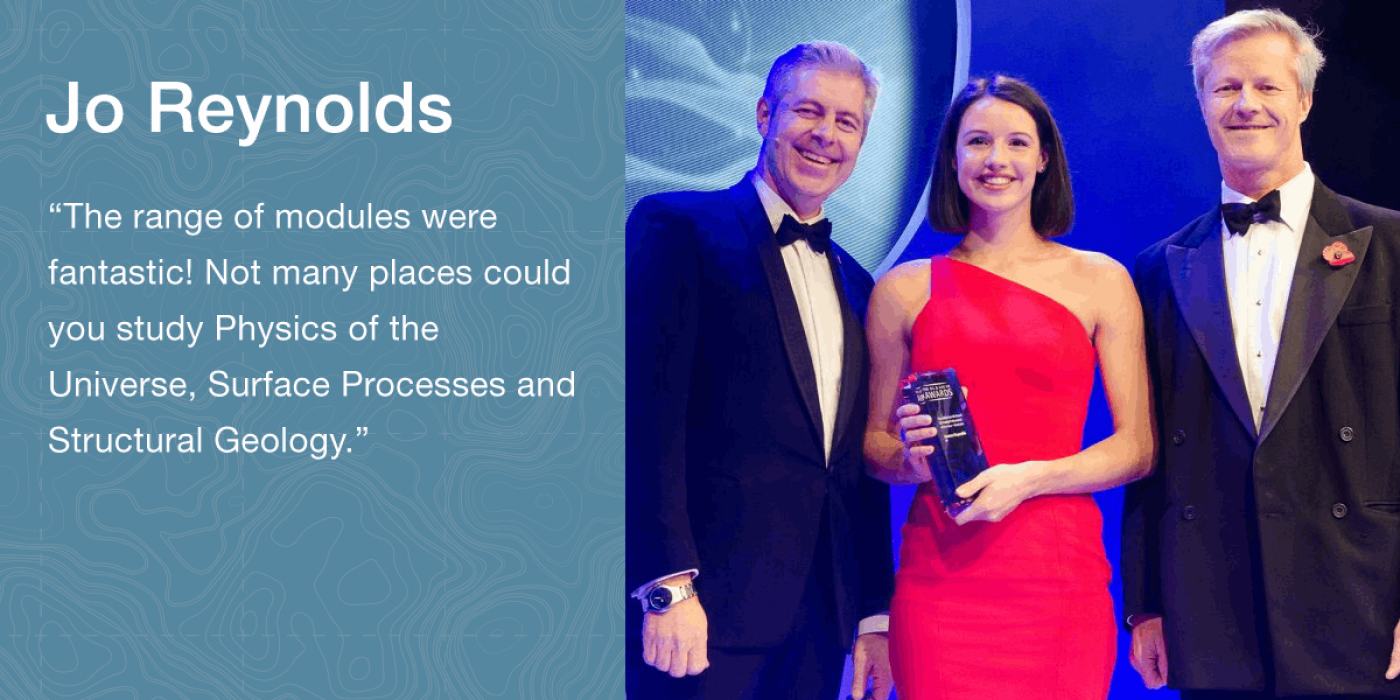
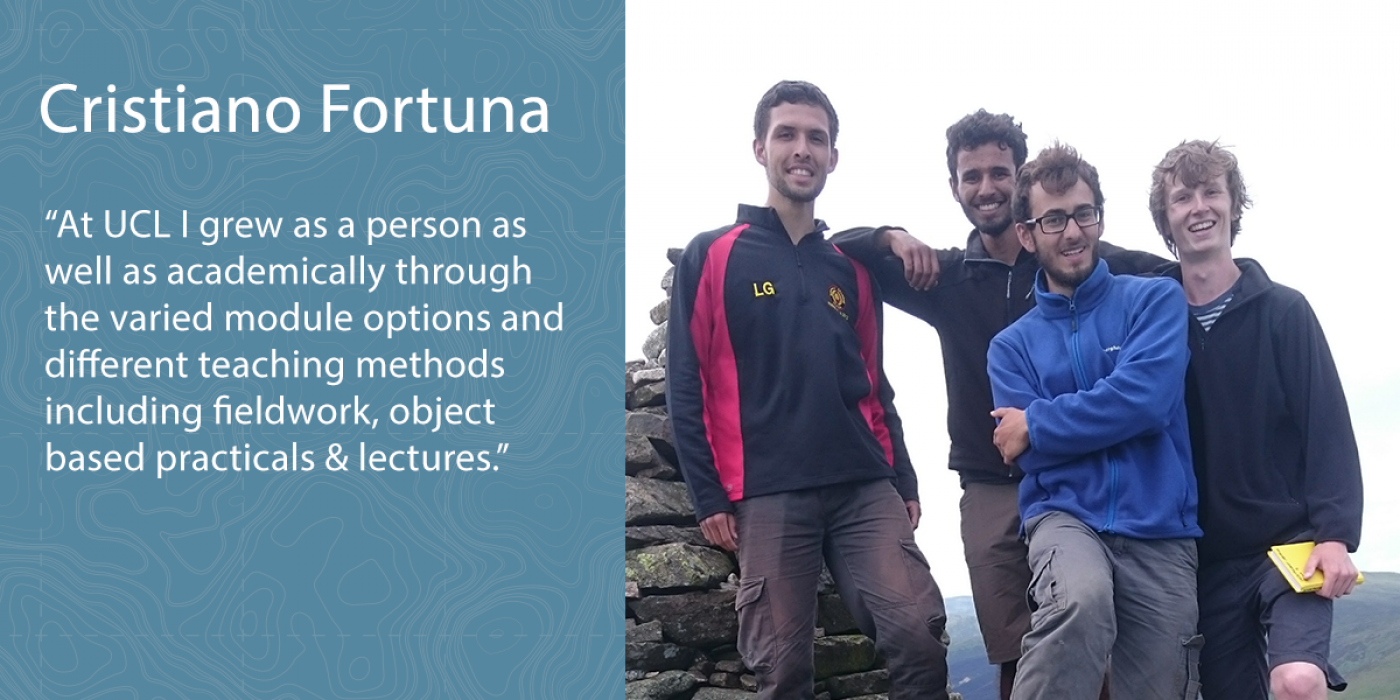
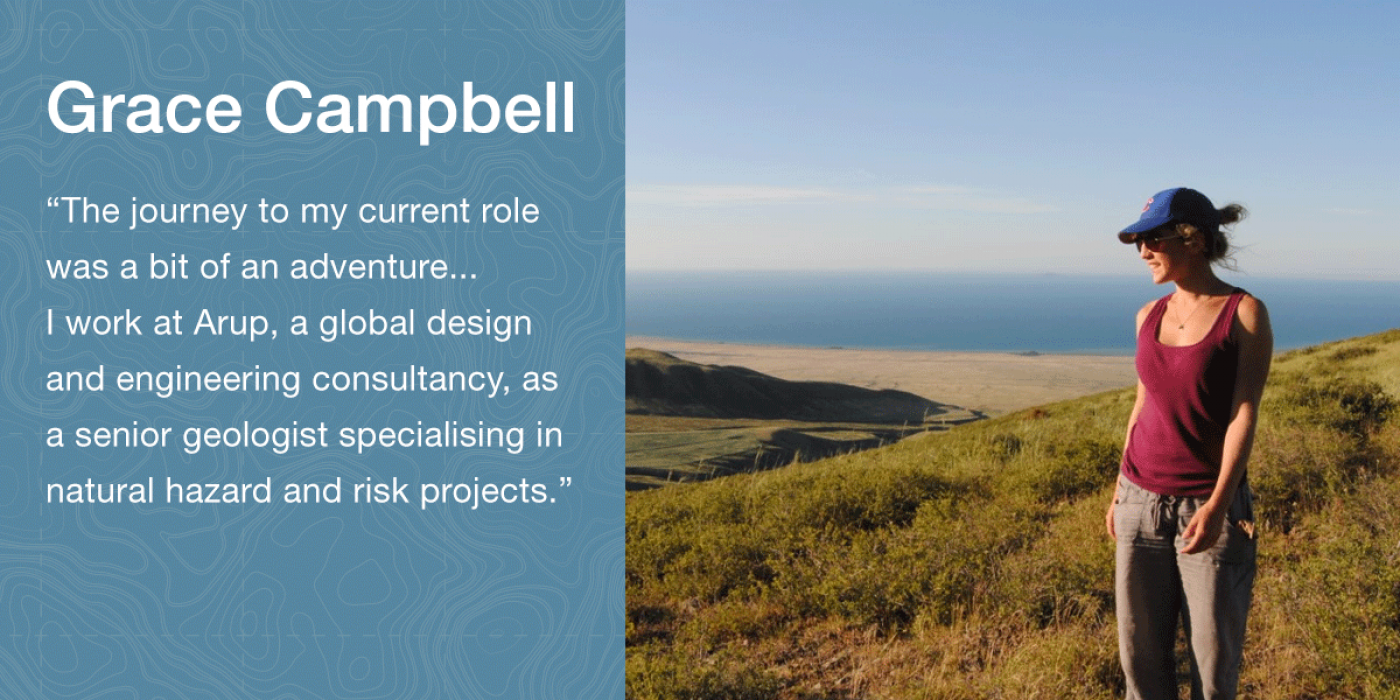
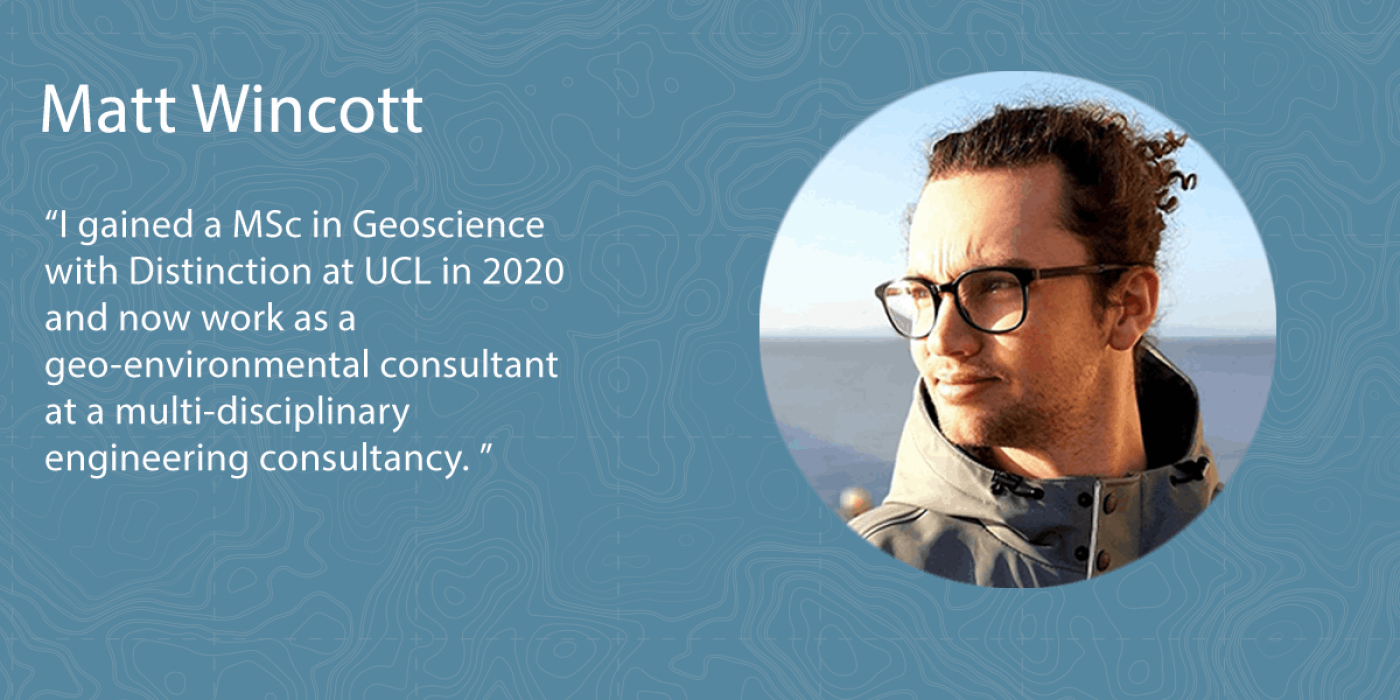
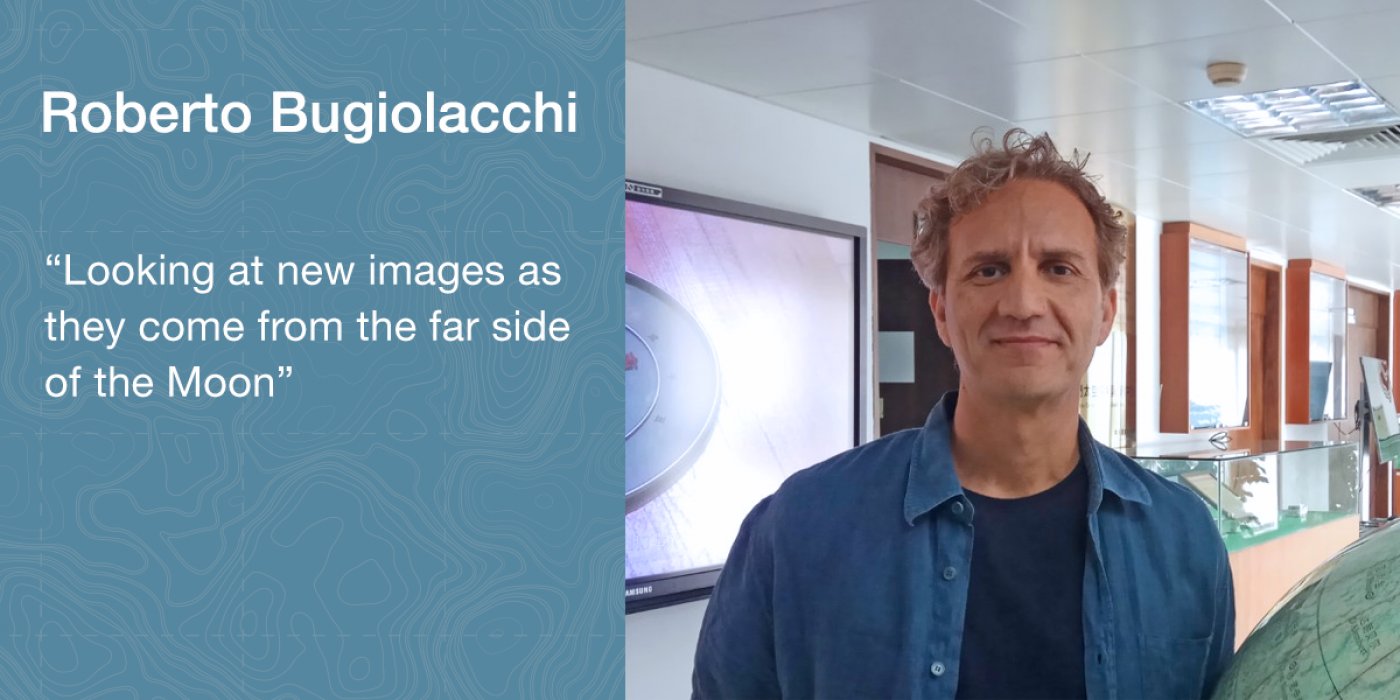
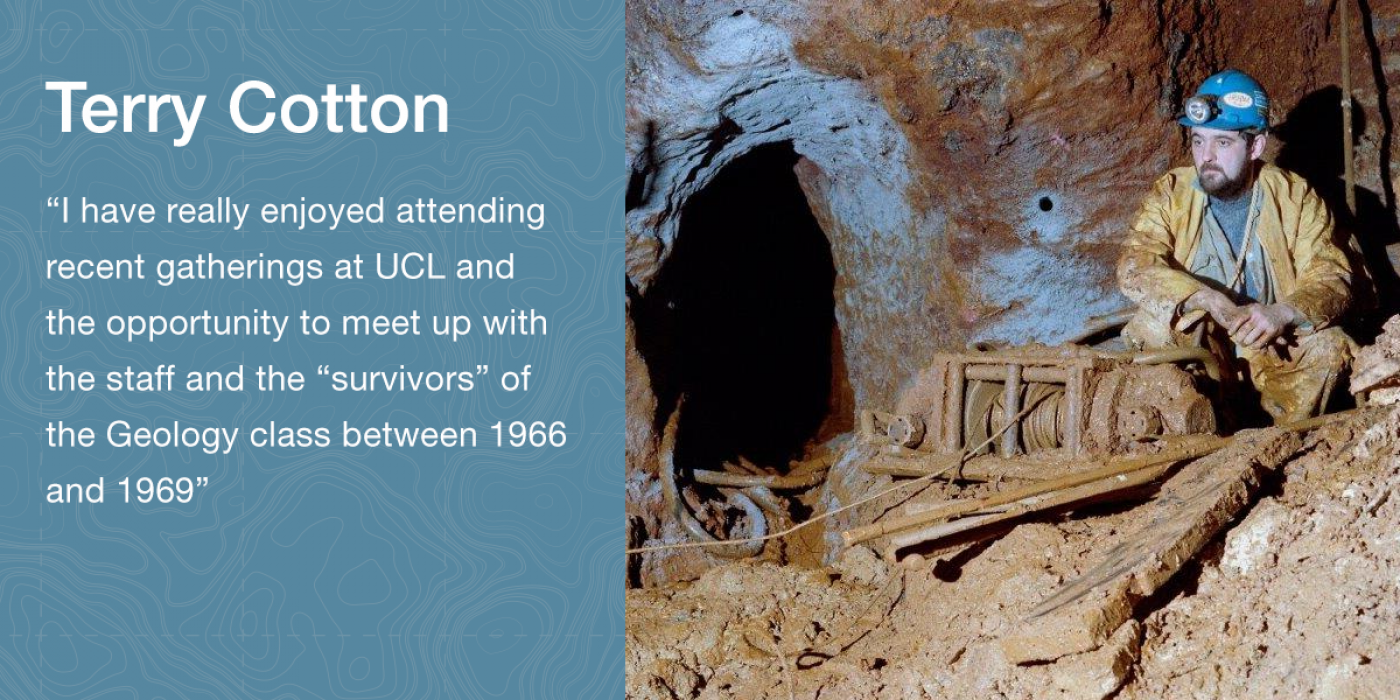
- Careers
Click on the Career compass image below to find out more about the range of job within geoscience, sustainabilitity, energy, risk, government & policy, finance and management and many more:
Options open to an Earth Sciences graduate include:
- joining an Earth Sciences-related company
- graduate taught degree programme (usually Masters or Diploma level courses)
- graduate research (PhD; specific research programme)
- employment in a non-Earth Sciences field
- obtain further qualifications or training (e.g. post-graduate certificate of education)
- Career options and further information is available from the Geological Society
Find out what our graduates do:
Explore what our graduates go on to do and the variety of possible career paths.
- Careers Support
UCL Careers Service
UCL Careers provides a range of services to help you take the next step in your career after finishing your studies.
1to1 Careers Coaching
You can sign up to one-to-one guidance sessions which cover:
• Exploring options related to your degree
• Planning your next steps after graduating
• Gaining experience through internships, placements, work experience and ‘shadowing’
• CV writing and making applications
• What to expect at interviews and assessment centres
• How to pitch your degree, skills and experience to employers
• Pursuing further study or an alternative career route outside of the Earth Sciences field
Book a 1to1 appointment
Practice interviews
If you’ve been invited to any type of interview, you can book interview coaching. This role-play exercise will help you practice typical interview questions for the role/ course you’ve applied for and help you to work on your interview technique.
You’ll receive feedback on your performance during the session and have chance to address any other concerns you have about the interview process. We aim to make practice interviews as similar to the real thing as possible, so you must have a real interview invite before booking.
Book a Practice Interview appointment- Employment
The diversity of the subjects means that geoscientists are employed in many different areas - see below - although five main broad areas may be defined:
Exploration and Production:
searching for and managing the extraction of natural resources such as fossil fuels (oil and gas), metals, construction materials. Includes mining geologists, mud loggers. Principal employers are usually the large oil, mining and civil engineering companies, but smaller consultants and contractors offer specialist services.
Water Supply:
locating and managing the quantity and quality of global water supplies.
Environmental and Engineering:
investigating and monitoring ground conditions associated with construction, planning, land use, reclamation of contaminated land, waste disposal and health.
Geological Surveying:
collecting surface and subsurface geological information, onshore and offshore, for geological, geophysical and geochemical maps and databases, the basic tools underpinning the utilisation of all geological resources.
Education and Research:
teaching and research in universities; teaching in schools and colleges; museum work.
Geoscientists are also be employed in the fields of:
Acoustic & Air Pollution
Agricultural Science
Archaeology
Atmospheric Science
Botany
Civil Engineering
Climate Sciences
Commercial, Sales & Marketing
Conservation Biology
Contaminated Land &Remediation
Earth System Science
Ecology
Economic Geology
Engineering Geology
Environmental Sciences
Forestry
Geochemistry
Geochronology
Geocomputing
Geography
Geomorphology
Geophysics
Geotechnical
Glacial geology
Hydrology / Hydrogeology / WaterMarine Geology
Meteorology
Mineralogy
Mining / Mineral Exploration
Natural Resource Management
Oceanography / Marine Sciences
Oil Field Services
Oil & Gas
Palaeoecology
Palaeontology
Petroleum Engineering
Petrology
Plant Science
Planetary Science
Remote Sensing / GIS
Science Administration, Policy & Management
Sedimentology
Seismology
Stratigraphy
Structural Geology
Soil Science
Space & Planetary Sciences
Transport Engineering & Planning
Volcanology
Waste ManagementWhat do UCL Earth Science students go on to do?
The latest survey data* reveals:
• 61% were in graduate-level employment
• 24% were in further study
• 4% were in other work or other study
Companies which employed UCL Earth Science graduates include global geoscience and multinational organisations, the UK Government and independent consultancies.
Example job roles include:
• Graduate hydrologist, Geo-environmental consultant, Oilfield production consultant, Water resource scientist, Risk analyst (Natural catastrophe), Cyber security analyst
Examples employers include:
• The British Geological Survey, Mott MacDonald, Arup, AECOM, Geotechnical Engineering, Thames Water, JP Morgan Chase, IBM, Accenture and various UK Government departments and agencies including The Environment Agency, Scottish Environment Protection Agency (SEPA) and Natural England.Many of our undergraduates embark on specialist graduate taught degree and PhD programmes.
• Examples include: MSc Environmental Change & Management, MSc Petroleum GeoScience, PhD (Earthquake mechanics), PhD (Sea ice emulators) at institutions including UCL, Oxford, Imperial and Leeds.
*Source: Graduate Outcomes Survey 2017-19. UCL Earth Science students who graduated in 2018 & 19 were surveyed 15 months after graduation. 46 out of 89 graduates responded (response rate: 55%).
- Events
Students can attend departmental, faculty and central careers events including sector-specific careers fairs, employer presentations and masterclass talks hosted by UCL Careers, designed to develop employability skills and explore different sectors.
UCL Careers and the department’s student society (Greenough Society) run regular events including an annual alumni careers forum with students able to hear about a variety of job roles that former Earth Science students have gone to do.- Work experience and internships
Getting work experience is vital to build transferrable skills and gain exposure to different types of roles. UCL Careers can support you with guidance on where to find advertised opportunities and make successful applications. Many opportunities are never publically advertised and are often sourced using speculative approaches to target organisations or leveraging relationships with alumni.
Internships
Summer undergraduate internship programmes are a great way to gain practical work experience, get an insight into how professional companies work or be part of a research team. Check out some of the placement websites:
All our Alumni are invited to join us on Facebook and LinkedIn Alumni groups.
Facebook Alumni Group | LinkedIn | Twitter (@ES_UCL) | Instagram
Careers Contact: Dr Katie McFall
For latest video news check our EarthSciences YouTube channel.
 Close
Close


